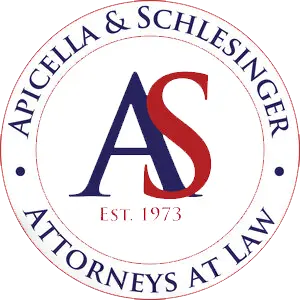We understand how stressful and confusing the juvenile justice system can be and are dedicated to ensuring that your child’s rights are protected every step of the way.
When a child is arrested in New York City, it can be an overwhelming and frightening experience for both the child and their parents. Understanding the legal process and how to protect your child’s rights can significantly affect the outcome of the case.

At Apicella & Schlesinger Attorneys at Law, we are committed to guiding families through the complexities of the juvenile justice system in the Bronx and beyond. Call us today for a free consultation.
Understanding the Juvenile Justice System in NYC
The juvenile justice system in New York differs significantly from the adult criminal system. In general, minors under the age of 16 who are arrested are processed through Family Court rather than Criminal Court. However, there are exceptions, such as when a minor aged 16 or 17 is charged with certain serious offenses, in which case they may be treated as an adult under New York’s “Raise the Age” law.
Juveniles in NYC may be classified into the following categories:
- Juvenile Delinquents (JDs): Children aged 7 to 15 who commit offenses that would be considered crimes if committed by an adult. These cases are handled in Family Court.
- Juvenile Offenders (JOs): Minors aged 13 to 17 charged with serious felonies, such as murder or armed robbery, may be prosecuted in the adult criminal system.
- Adolescent Offenders (AOs): Youths aged 16 and 17 charged with felonies may be processed in the Youth Part of the Criminal Court, where their case may be transferred to Family Court, depending on the circumstances.
What Happens After a Juvenile Arrest?
Once a juvenile is arrested in NYC, the process typically follows these steps:
- Taken into Custody: The child is detained by law enforcement.
- Notification of Parents: Law enforcement must notify the child’s parent or guardian.
- Interview and Statement: Police may attempt to interview the child, but juveniles have the right to remain silent and should not answer questions without an attorney present.
- Family Court or Criminal Court Processing: Depending on the severity of the offense, the case is sent to Family Court or Criminal Court.
- Possible Detention or Release: The child may be released to their parents or placed in a juvenile detention center while awaiting a hearing.
- Court Proceedings: The child appears before a judge who will determine the next steps, including dismissal, diversion programs, probation, or further legal proceedings.
Rights of Juveniles During Arrest and Interrogation
Parents must understand that juveniles have the following rights when arrested:
- Right to Remain Silent: Anything they say can be used against them in court.
- Right to an Attorney: A child has the right to legal representation, and a court-appointed lawyer will be provided if they cannot afford one.
- Right to Parental Notification: Law enforcement must inform parents of their child’s arrest.
- Right Against Unlawful Search and Seizure: The same constitutional protections apply to minors as they do to adults.
What Should Parents Do If Their Child Is Arrested?
If your child is arrested in NYC, take the following steps to protect their rights and future:
- Remain Calm: Staying composed will help you effectively advocate for your child.
- Do Not Allow Your Child to Speak to Police Without a Lawyer: Even if your child is innocent, speaking to law enforcement without legal representation can be harmful.
- Contact an Experienced Juvenile Defense Attorney Immediately: An attorney specializing in juvenile law can protect your child’s rights and work towards the best possible outcome.
- Attend All Court Hearings: Ensure your child complies with all court requirements and attends all scheduled hearings.
- Explore Alternative Sentencing Options: If your child is found guilty, alternative programs such as diversion programs, counseling, or community service may be available instead of detention.
How Apicella & Schlesinger Attorneys at Law Can Help
At Apicella & Schlesinger Attorneys at Law, we have extensive experience handling juvenile defense cases in the Bronx and throughout NYC. We understand how stressful and confusing the juvenile justice system can be for families, and we are dedicated to ensuring that your child’s rights are protected at every step.
If your child has been arrested, do not wait. Contact us today for a free consultation. We will provide you with expert legal guidance and a strong defense to help safeguard your child’s future.
